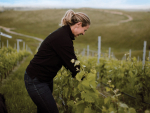Is augmented reality the future of farming?
Imagine a farmer being able to tell a paddock’s pasture cover and dry matter content just by looking at it, or accessing information about a cow’s body condition score in the same way.
For several years, American customers of online giant Amazon.com have been privy to a service we still can't comprehend down here in New Zealand: one hour delivery of any item from the website.
This winter, Amazon launched into beer, wine, and spirit sales and added them to its one-hour-delivery catalogue.
The company, which has come a long way from being an online bookshop to one of the world's biggest brands, outsources delivery to courier companies and charges US$7.99 for one hour delivery of alcoholic beverages, while subscribers of the "Amazon Prime Now" exclusive benefits service get two-hour delivery for free ("Prime Now" costs US$99 per year).
Over 8000 wines feature in Amazon's catalogue, including 48 New Zealand wines at the time of writing. The predominant Kiwi labels available to US customers via one-hour delivery are Jules Taylor and Quartz Reef.
For added convenience, Amazon's Prime Now customers can order their alcohol via an iOS or Android app on their smartphone. This means they don't even need to leave the couch and start up their laptop to order a Sonoma Valley Chardonnay (or a Central Otago Methodé Traditionelle) right to their doorstep before dinner is on the table.
Such an innovation isn't unique to Amazon. In fact, several other US services have launched apps for major American cities that allow for delivery of wine, beer, and spirits within the hour.
Drizly, which was started by a university student from Boston, allows customers to use an app to order alcohol from a local liquor store, and have it delivered by a third-party driver. Unlike Amazon, Drizly doesn't actually stock or sell the product; the company is merely the facilitator of the sale.
Similar apps such as Thirstie, Minibar, DrinkFly, Saucey, and Klink do the same job, whilst adding extra in-app features such as wine pairings, recipes, videos, infographics, and editorial commentary around the culture of wine, beer, and spirit consumption.
So, how do Drizly, Thirstie and others make money? Drizly confirms it charges liquor retailers a monthly licencing fee for marketing their product range and completing the sale via credit card on the app. It also charges a US$5 delivery fee, but this goes direct to the retailer who pays the third-party delivery service. The bottles of wine, beer, and spirits themselves are no more expensive than buying them in-store, so retailers are betting on increased sales opportunities to prove their investment in app-based sales worthwhile.
Specific brands are partnering with some of the aforementioned alcohol delivery companies. Anheuser-Busch, parent company of Budweiser, for example, partnered with Klink in January to develop a brand-specific app called "Bud Light Button". The very simple app is exactly as advertised: a large digital button that users can press on their smartphone, then confirm their location, and an order of between one and 100 cases of Bud Light will be delivered within the hour and charged to their credit card. The app "is about the ease of delivery and getting the product to our consumers so they can continue the fun that they are having," confirms a representative of the digital agency AKQA, which developed the app.
For a promotion last Christmas, whiskey brand Jack Daniels developed a similar initiative, except with even more "novelty" value. Partnering with Saucey, any bottle of Jack Daniels ordered on the app was delivered not by a regular delivery person, but a Frank Sinatra impersonator.
While no wine labels have yet developed their own exclusive delivery apps, it won't be long before some of the top international wine brands get on board. Perhaps we'll see Pernod Ricard roll out a Perrier-Jouët app that enables delivery of champagne and strawberries, or LVMH launch a promotion that sees its Moet Hennessy product delivered by Marie Antoinette lookalikes.
With the immense success of these technology-driven developments in wine and other alcohol sales Stateside, one is left wondering if any of it would work in New Zealand.
While most initiatives only operate in very large metropolitan cities such as New York City, Drizly takes a different approach. The company says it assesses new cities for launch based on demographics and population, in order to assess the likely uptake and success of the app.
The most recent of which was Worcester, Massachusetts, which has a population of under 200,000 (making it less populous than Wellington). Worcester, like Wellington, is home to more than a dozen tertiary institutions and private training establishments for students.
Wine and other alcoholic beverage retailers might see launch opportunities in our capital as a test market, especially given the geographic limitations of the CBD area and ease of which a delivery service could provide orders within the hour.
Minibar's target market is people organising parties. Primarily, this suggests it aims at those who do not have the physical ability to pick up large quantities of alcohol the day of the event, or those who foresee running out in the middle of a party and don't want to send somebody out to the local supermarket or liquor store. Minibar helps users calculate the volume of wine or other beverage needed dependent on the number of people at the party, and how long the host believes it will go on for.
An opportunity is presented here for an app or online service that can deliver wine and other beverages on-demand for private parties, corporate events, and even weddings as an "11th hour" saviour when stocks are getting low. This would be unique in New Zealand and could be particularly successful in remote, event-centric regions such as Queenstown.
In New Zealand we should anticipate criticism of on-demand alcohol delivery apps from health agencies, particularly as Kiwis' binge-drinking culture is famously recognised by authorities (and many programmes are in place to reduce, not aid, alcoholic beverage consumption). Drizly drivers reserve the right to deny alcohol delivery to intoxicated patrons, potentially offering insight into a workaround of the New Zealand law which prevents liquor retailers selling their product to anybody under the influence.
While some apps require proof of identification to verify the user is of legal drinking age, others place this responsibility on the delivery company. It is unclear what happens in the latter situation when a customer is found (upon delivery) to be underage, and whether a fee is charged for an uncompleted order. This is something New Zealanders should consider when dealing with legal drinking age barriers with online ordering.
As with any off-license alcohol vendor, there will also be considerations to make around hours of operation, which is non-cohesive with the 24/7 nature of online and app-based shopping.
Excepting this and other similar (but not insurmountable) obstacles, there's little reason why wine and other alcoholic beverage vendors should not be testing out app-based order and delivery services in New Zealand. Such apps could prove as popular as Uber, Tinder, and other localised versions of international apps that are doing well in our market.

OPINION: Harvest begins, and almost immediately we start to get media enquiries about how the vintage is going and whether it…

OPINION: Rachael Cook is the smiling grape grower on this month’s cover, tending vines on the miniscule, beautiful and dream-driven vineyard…
New Zealand wine enthusiasts have a deepening understanding and growing appreciation of sparkling wine, says Mel Skinner, Chair of Méthode Marlborough…
One of the biggest mistakes wine marketers make is in assuming consumers are as passionate and knowledgeable about wine as…
Taking two sustainability awards at two events on a single evening felt like "true recognition" of the work Lawson's Dry…